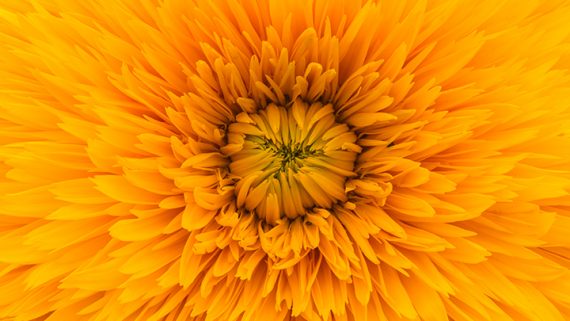8 Medicinal Herbs for Your Garden: How to Grow & How They Heal
8 Herbs for Healing You Can Grow at Home
By: Jeffery Thompson
Ancient cultures around the world have a long history of using medicinal plants and herbs for treating a variety of ailments and illnesses. There is still a plethora of plant species that are not fully known by modern science.
Before the advent of modern medicine in the last 200 years, plants were the only source of medicine to treat illnesses. The chemicals from many of these healing plants and their healing effects form the basis for most modern medicine today.
According to the World Health Organization, 11 percent of the 252 drugs that are in the basic and essential category are exclusively from flowering plants. There is an incredible variety of medicinal herbs in the world, but unfortunately, you may find it difficult to purchase most of these from your local market. But you can find them at farmer’s markets and health food stores.
By possessing the knowledge of how to grow your herbs and understanding the medicinal properties of these herbs, you can avoid regular visits to the doctor saving you money.
Here are the top 8 medicinal herbs for your garden with details on how to grow and how they heal.
1. Gingko
Gingko is one of the oldest medicinal plants that are an integral part of traditional Chinese medicine. You need a large open space for planting Gingko trees as these trees can grow to very large sizes during their potential life span of 3000 years. Although Ginglo trees can tolerate a variety of soils, they thrive best in sandy soil. Gingko trees do not require additional fertilizers; however, they require direct sunlight.
Gingko plays an effective role in improving brain health and helping in fighting against Alzheimer’s disease and dementia. According to recent research, Gingko can also help in treating diabetes and improve bone healing.
 2. Mint
2. Mint
There are many varieties of mint to choose from and grow, ranging from chocolate to peppermint. Mint is an aggressive species, and if you do not want it to spread through your whole garden, you need to keep it in a pot. Mint does not require any special care and can tolerate most types of soil as long as it gets a good deal of sunlight.
Mint is effective for healing digestive issues. You can make tea from boiling mint leaves and water in a pot, which can relieve nausea.
3. Chamomile
Chamomile is an excellent medicinal herb that has an appealing smell and sweet flavor. It serves as a mild sedative and relaxant. The high Azulene content in Chamomile provides anti-inflammatory properties, and you can use it as a pain relief for arthritis.
Chamomile is also excellent for sleeping and for destressing. Chamomile can be hard to grow in hot climates, although it likes a good amount of sunlight. You do not require additional fertilization of the soil, and the plant can grow in a variety of different soil types.
4. Cannabis
Marijuana can also help you recover from muscle spasms and pain due to multiple sclerosis, according to multiple studies. The active compounds in cannabis also aid in resolving sleep deprivation and can be useful for treating pain due to surgery or trauma from neurological injury.
Vaporization of cannabis and inhaling the fumes can reduce neuropathic pain. Young Cannabis plants tend to grow more quickly in warmer climates and slightly cooler temperature resulting in better color and smell of buds in the flowering stage.
Cannabis plants require at least 8 hours of direct sunlight and grow well in soil with adequate amounts of compost. For growing Marijuana indoors, make sure you buy indoor seeds from a reputed canada weed dispensary. Also, remember many in many states in America growing cannabis yourself is still illegal.
5. Basil
Basil is a prevalent herb used in our meals and salads to provide flavor and add essential vitamins and minerals for the body to remain healthy. While planting the seed, ensure that you do not sow it too deep in the soil. Basil thrives better in a warm climate and will germinate and grow slower in cooler climates.
Basil has many health benefits such as improving digestion, boosting metabolism, and reducing stress. Other benefits include improving immunity, antibacterial properties, strengthening liver and bones, reducing inflammation, and many more.
 6. Lavender
6. Lavender
Lavender flowers spread an aromatic and pleasant smell through your garden, and you can make tea by mixing it with other garden herbs. Lavender is ideal for treating acute to chronic anxiety and reducing stress. You can even stuff lavender in your eye pillows for encouraging you to sleep better. They thrive in arid soil and can not withstand high humidity, which can cause rotting of the root. You only need to water this plant once or twice a week after planting.
7. Jiaogulan, Southern Ginseng
Jiaogulan is a close relative of the Ginseng, and it shares many of the medicinal properties.
Preparing a tonic tea from this plant helps alleviate chronic stress, high cholesterol, high blood pressure, anxiety, depression, and promote vitality and longevity. This herb prefers moist and rich soil with plenty of shade, and although it only grows 4 inches off the ground, it can spread horizontally and occupy your entire garden, so be careful where you plant it.
8. Rosemary
Rosemary is indigenous to the Mediterranean and prefers sandy or rocky soil with an abundance of direct sunlight. Rosemary is perennial in warmer climatic regions and can tolerate drought easily.
This herb has many antioxidants and anti-inflammatory benefits resulting in boosting the immune system. It is also said it can improve the memory. It is excellent for rinsing your hair by preparing a brew through boiling rosemary leaves along with lemon juice for 10 minutes.
Conclusion:
Gardening also has a positive effect on your mental health. According to studies, gardening helps in keeping blood pressure under control, maintain weight, and reduce depression. Ensure that you find a place that receives at least six hours of sunlight for the herb garden.
You can treat most of the common ailments yourself by having an herb garden with a variety of medicinal plants. Gardening can also be beautiful and getting out in nature helps everyone.
Medicinal herbs are easy to grow and you can ensure the best quality of herbs when you grow them yourself rather than purchasing. Ensure that you research the medicinal herbs and understand how to best use them to avoid potential issues.









